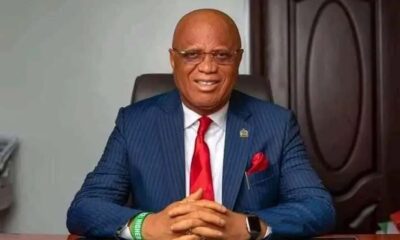News
We can’t pay minimum wage without increased allocation – Ekiti gov
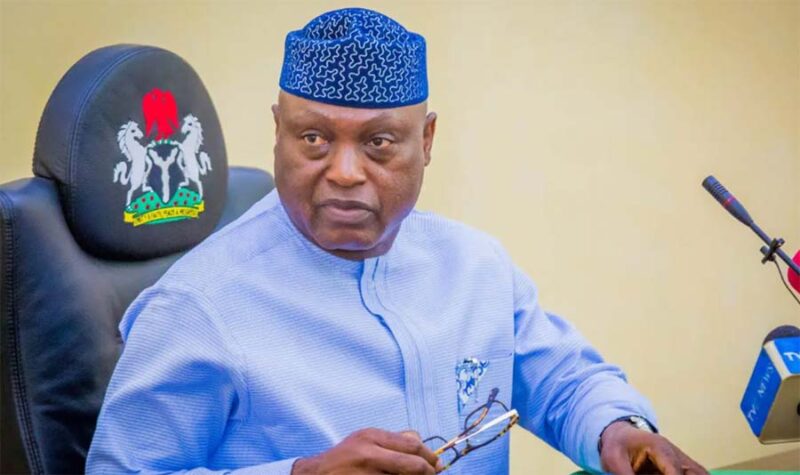
We can’t pay minimum wage without increased allocation – Ekiti gov
The Ekiti State Governor, Biodun Oyebanji, on Wednesday, said governors, under the aegis of the Nigeria Governors’ Forum, are not against approval of a minimum wage for Nigerian workers.
Oyebanji said the NGF was only clamouring for fiscal federalism that would culminate in the ability and capability of individual states to pay.
Organised labour is battling the Federal Government of Nigeria over delay tactics in implementing the new minimum wage for workers.
While the tripartite committee set up by the government recommended N62,000 to President Bola Tinubu, the governors insisted that most states could not pay the amount and asked that the new minimum wage be pegged at N57,000.
The recommendations of both the tripartite committee and the NGF were, however, not acceptable to the organised labour who came down to the N250,000 benchmark during the final meeting of the tripartite committee.
As Tinubu opted to dialogue with the NGF and the employers, the labour came hard on the governors, accusing them of being insensitive to the plight of the workers.
READ ALSO:
- Lagos state govt seals house over emptying of waste into flood
- JUST IN: Senate holds executive session over FCT Senator Ireti Kingibe/Wike dispute
- Omokri vows to end Peter Obi’s political career
Oyebanji, speaking in Ado Ekiti, during the Seventh Quadrennial Delegates’ Conference of the Association of Senior Civil Servants of Nigeria, however, said no state wanted to downsize its workforce, adding that each state was interested in determining what it could afford that would not end up in the eventual retrenchment.
“The NGF is not against the living wage. No governor is against the minimum wage, but what we are saying is that it must reflect fiscal federalism, ability and capacity to pay.
“No governor wants to retrench, if there is a minimum wage today without a concurrent increment in what we are earning, no state can pay.
“That is the conversation we are having – that, look, we want to give you a living wage, but we must look at what comes to the states and whatever is in the best interest of the states and the workers, we will do,” Oyebanji said.
The governor told the workers, “My appeal to civil servants is that those who would like to be part of our agriculture revolution should form themselves into cooperative societies and approach the Ministry of Agriculture for support.
“It may be difficult to support you individually, but when you form yourselves into cooperatives, many opportunities are available now. We are clearing land free of charge, we are giving inputs and we are going to buy from you. As I speak today, we have cleared more than 2,000 hectares across Ekiti State.”
Oyebanji reiterated the pivotal role civil servants played in the growth and development of the state, especially in the realisation of the six pillars of his administration, adding that whatever compliments the administration had received could only be directly attributed to the efficiency and effectiveness of the workers.
He said, “I have come here today to associate and rejoice with you as major stakeholders in our body polity.
We can’t pay minimum wage without increased allocation – Ekiti gov
News
Why governors’ forum is silent on Rivers emergency, by DG
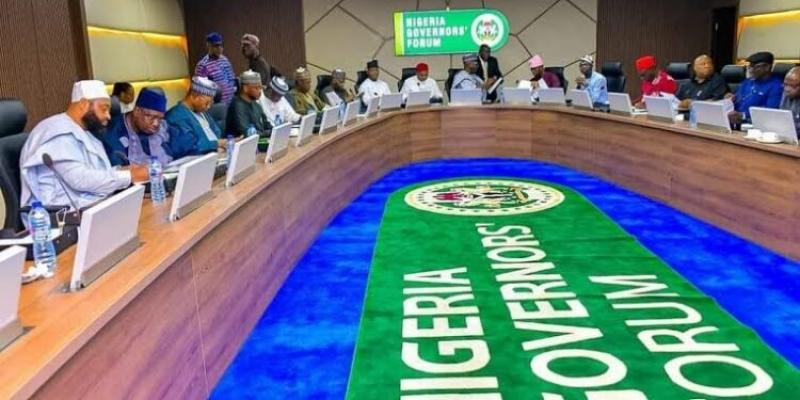
Why governors’ forum is silent on Rivers emergency, by DG
The Nigeria Governors’ Forum (NGF) yesterday attributed its neutral position on the recent declaration of a state of emergency in Rivers State to the need to steer clear of taking positions that may alienate members with varying political interests.
Taking positions on contentious partisan issues, the NGF said, would not augur well for it, especially in view of its past experience in fundamental division.
Notwithstanding, the declaration of the state of emergency by President Bola Tinubu yesterday generated more kudos and knocks from across the country.
Special Adviser to the President on Senate Matters, Senator Basheer Lado, said the action of the president was meant to ensure protection of lives and restoration of law and order in the state, while the President’s Special Adviser on Media and Public Communications, Sunday Dare, said his principal was required to “avert needless harm and destruction .”
National Publicity Secretary of the ruling All Progressives Congress (APC), Felix Morka, said Tinubu, by his action, cleared what had manifested as a constitutional crisis in Rivers state.
But former President Goodluck Jonathan saw it from a different perspective.
READ ALSO:
- Senate didn’t get 2\3 majority for Tinubu emergency rule in Rivers –Tambuwal
- FG destroys another 200 containers of expired drugs
- Rivers court bars woman from answering ex-husband’s name
He described “abuse of office and power by the three arms of government in the country“ as a dent on Nigeria’s image.
The NGF, in a statement by its Director General Abdulateef Shittu, said it is essentially “an umbrella body for sub-national governments to promote unified policy positions and collaborate with relevant stakeholders in pursuit of sustainable socio-economic growth and the well-being of the people.”
It added: “As a technical and policy hub comprising governors elected on different platforms, the body elects to steer clear of taking positions that may alienate members with varying political interests.
“In whatever language it is written, taking positions on contentious partisan issues would mean a poor sense of history — just a few years after the forum survived a fundamental division following political differences among its members.
“Regardless, the Forum is reputed for its bold positions on governance and general policy matters of profound consequences, such as wages, taxes, education and universal healthcare, among others.”
It asked for “the understanding of the public and the media, confident that appropriate platforms and crisis management mechanisms would take care of any such issues.”
Why governors’ forum is silent on Rivers emergency, by DG
News
Rivers: Tinubu acted to save state, economy, says Karimi
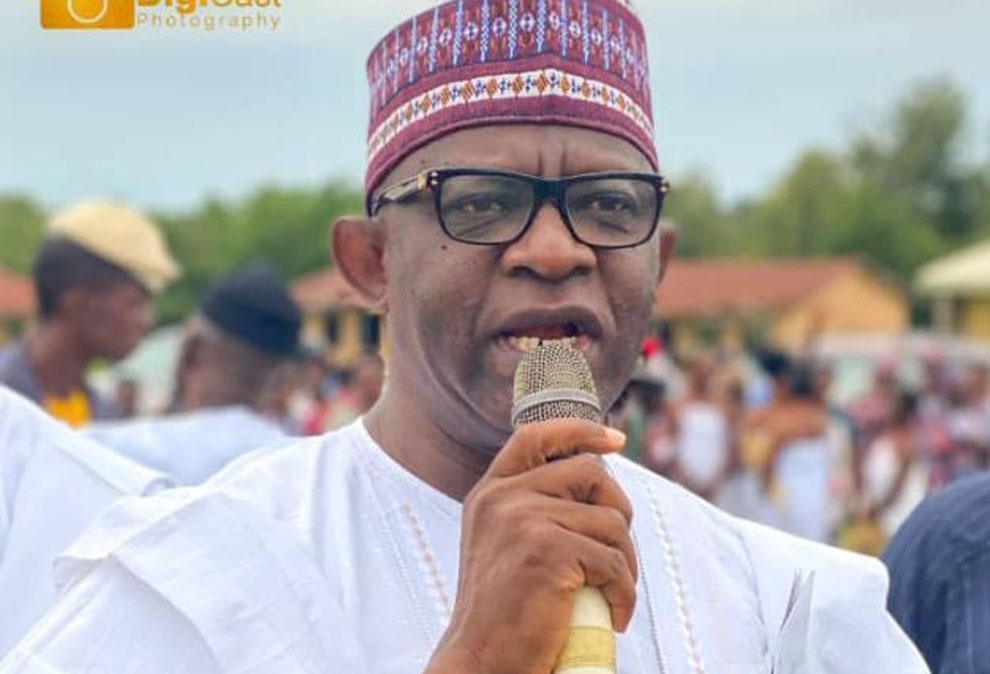
Rivers: Tinubu acted to save state, economy, says Karimi
Chairman of the Senate Services Sunday Karimi has hailed President Bola Tinubu for the decision to declare a state of emergency in Rivers State.
He told reporters on Friday in Abuja that the President acted in the best interest of the State and Nigeria, having taken his decision in compliance with the Constitution.
“No President or government worth a name, will fold its arms and watch a political situation deteriorate to what we saw unfolding in Rivers State.
“We saw that bombing of pipelines had begun, and the security situation was getting worse with the tension everywhere”, Karimi stated.
Karimi, who represents Kogi-West on the ticket of the All Progressives Congress (APC), recalled the “fatherly role” Tinubu had played in the crisis since 2023 in a bid to get the Minister of the Federal Capital Territory (FCT), Nyesom Wike, and suspended Governor Siminalayi Fubara to reach an understanding, to no avail.
He explained: “We were all here in 2023 when Mr President called that truce meeting at the Aso Rock Villa. There was the eight-point agenda for settlement reached between the factions.
“When Nigerians expected that progress should be made to achieve peace, things started deteriorating considerably to a point where the governor demolished the House of Assembly building and administered the state with only three legislators.”
READ ALSO:
- Oluwo accuses Ooni of plotting to dethrone him
- Natasha: Court blocks recall attempt, stops INEC
- US ends legal status for 500,000 immigrants
Karimi observed that with the recent judgment of the Supreme Court, which gave the upper hand to the 27 lawmakers loyal to the camp of the FCT Minister, matters merely got worse in the State as the lawmakers were set to impeach the Governor.
“What did you expect would be the implications? There would have been more destruction, killings and economic losses for the country.
“With the bombings that had already started, it was a matter of time before the whole state would be engulfed in flames. No responsible President would sit, arms folded, and allow that to happen “ he added.
The senator further argued that it took “painstaking efforts” by the administration to raise daily crude oil production to around 1,800 barrels, noting that Nigeria’s economy was already “witnessing a rebound under the renewed hope projects of the government.”
“Allowing the situation in Rivers to get worse before he would act, wouldn’t have helped the state or Nigeria as a country in any way.
“Mr. President intervened at the right time, and his actions are covered by law,” he said.
Karimi also spoke on the emergency declaration in Borno, Yobe, Adamawa and a couple of other states by former President Goodluck Jonathan without removing the Governors from office or suspending the state assemblies.
According to him, the case with those States was not generated by political crises but rather security concerns.
“So, I will advise those comparing the two scenarios to remember that one was purely about security threats resulting from the insurgency caused by Boko Haram, while that of Rivers is clearly political.
“It was the proper thing to do to suspend the political actors in the two factions to allow for tensions to diffuse. Nigerians should appreciate the President for the action he has taken so far,” he stated.
Sen. Karimi also noted that there was no cause for alarm as the National Assembly had indicated that the emergency rule could be reviewed as soon as there were signs that things could quickly normalise in Rivers State.
Rivers: Tinubu acted to save state, economy, says Karimi
News
Just in: Tinubu swears in Rivers Sole Administrator Ibas
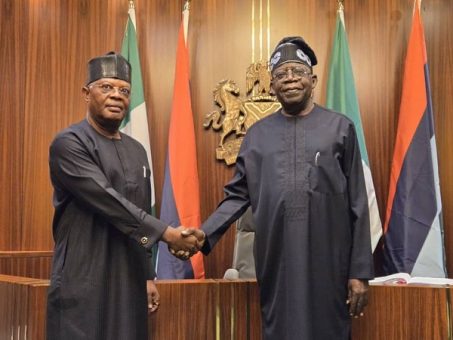
Just in: Tinubu swears in Rivers Sole Administrator Ibok-ete Ibas
President Bola Tinubu has sworn in Vice Vice Admiral Ibok-ete Ibas (Retd.) as the Sole Administrator of Rivers State.
The administrator was sworn in on Wednesday after a short meeting with the President.
Tinubu announced the appointment of the retired naval chief at a nationwide broadcast on Tuesday, when he declared a state of emergency in Rivers State and suspended Governor Siminalayi Fubara, Deputy Governor, Ngozi Odu, and the state House of Assembly members.
The President said his decision was based on Section 305 of the 1999 Constitution, saying he could not continue to watch the political situation in Rivers escalate without taking concrete action.
The suspension of Fubara and other elected representatives has been rejected and condemned by many eminent Nigerians, legal luminaries, groups such as Atiku Abubakar, Peter Obi, Femi Falana, the Labour Party (LP), the Peoples Democratic Party (PDP) and the Nigerian Bar Association.
However, the emergency rule has been praised by the pro-Nyesom Wike Assembly led by Martins Amaewhule, accusing Fubara of contravening the Supreme Court ruling on the political situation in the state.
Ibas was the Chief of Naval Staff from 2015 to 2021.
He is from Cross River State where he had his early education.
The new sole administrator went to the Nigerian Defence Academy in 1979 from where he proceeded to have a successful career in the Navy, rising through the ranks to the very top.
He is a member of the Nigerian Institute of International Affairs (NIIA) and the Nigerian Institute of Management.
President Muhammadu Buhari who appointed him as Chief of Naval Staff conferred him with the National Honour of Commander of the Federal Republic (CFR) in 2022.
-

 metro1 day ago
metro1 day agoRivers administrator Ibas fires Fubara’s political appointees
-

 metro1 day ago
metro1 day agoJUST-IN: Ex-Oyo gov Ajimobi’s first child Bisola dies At 42
-
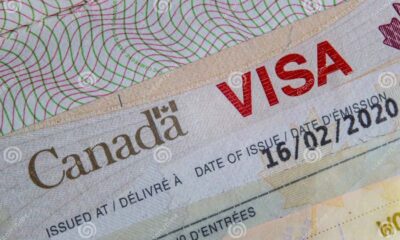
 International2 days ago
International2 days agoCanada removes bonus ranking points for job offers in Express Entry system
-

 metro2 days ago
metro2 days agoHow ritualists, native doctor drugged, murdered underage sisters in PH – Police
-

 Sports3 days ago
Sports3 days agoNigeria’s Super Eagles falter in W’Cup qualifiers against Zimbabwe, S’Africa lead, Egypt, Morocco qualify
-

 metro1 day ago
metro1 day agoFG declares public holidays for Eid-el-Fitr
-

 metro3 days ago
metro3 days agoAkpabio has habit of abusing women, says Atiku
-

 Africa1 day ago
Africa1 day agoNiger coup leader sworn in as president for five years





